People from the Past: a Short-Form History Paper Competition
An accessible, not-intimidating research paper designed to get people excited about history – now in its second year!
A record of the history lectures, classes, and round table discussions I’ve lead at SCA events – most come with accompanying handouts and resources.
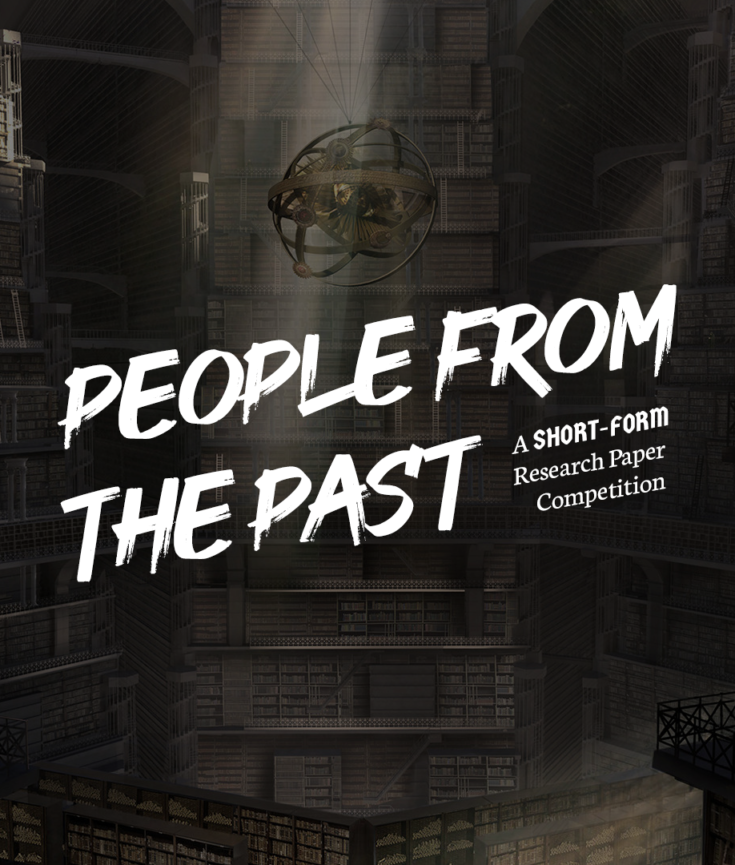
An accessible, not-intimidating research paper designed to get people excited about history – now in its second year!
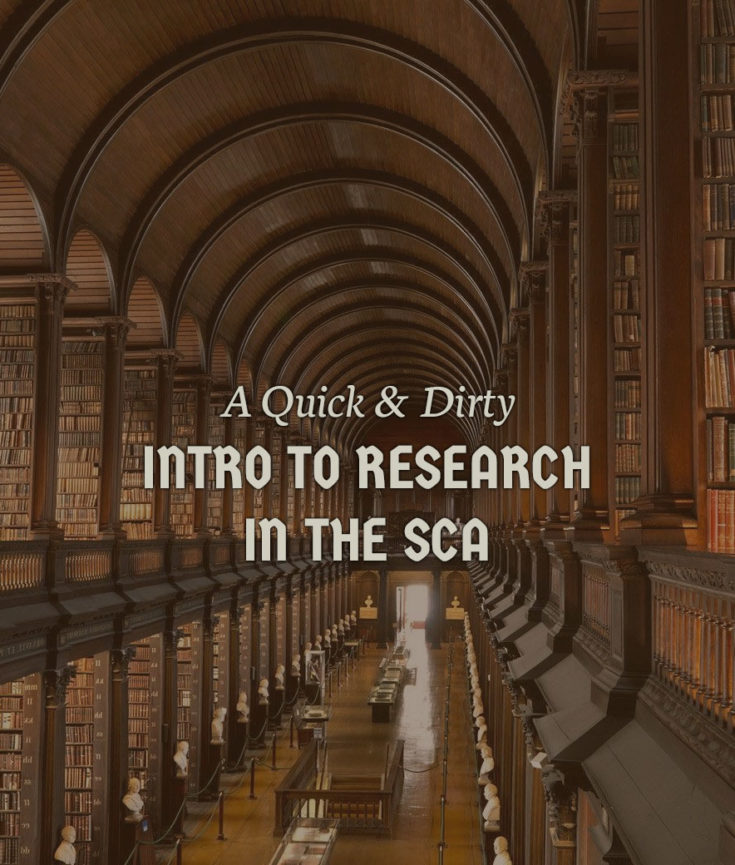
Coming into the “arts and sciences” side of the SCA without an academic or otherwise developed idea of scholarly research can be daunting. This class is an attempt to unpack the concept and provide attendees with both a framework and resources to research their own interests and unanswered questions.
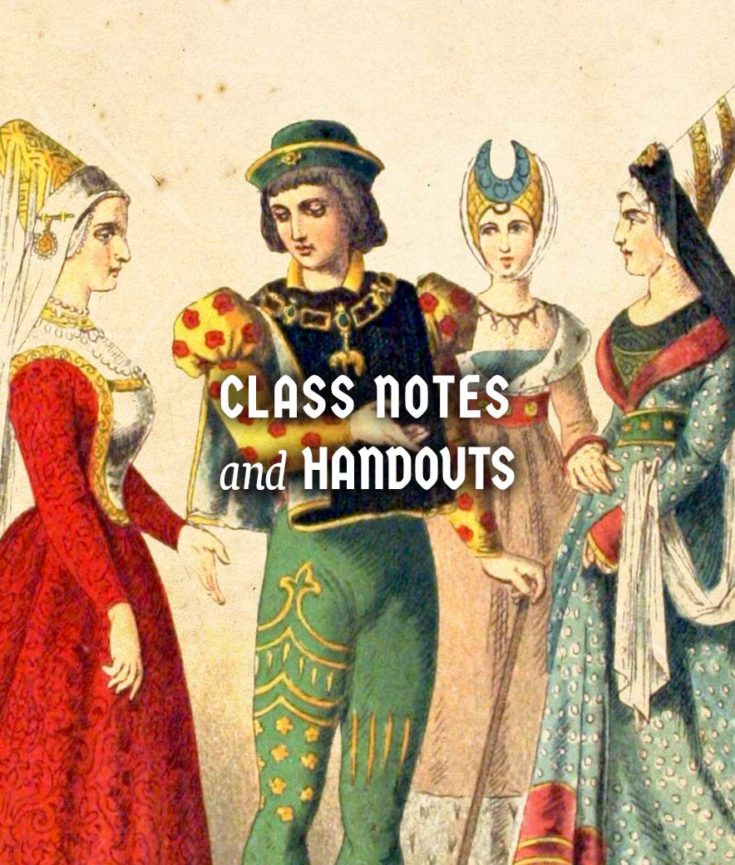
The concept of a persona in the SCA – or in other living history and reenactment organizations – can be a daunting and nebulous concept to unpack. These class notes and worksheets should help you make sense of your own approach to persona.
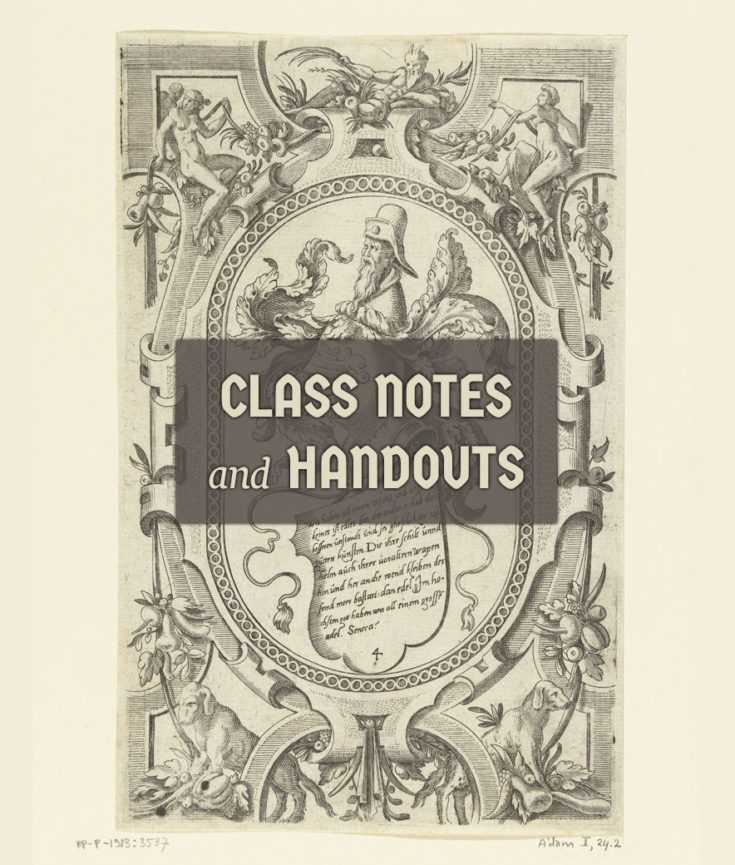
The sixteenth century – and its vast array of prints, in particular – is a fertile field of inspiration for artists, illuminators, and calligraphers looking for interesting and lesser-used sources for C&I work in the SCA.
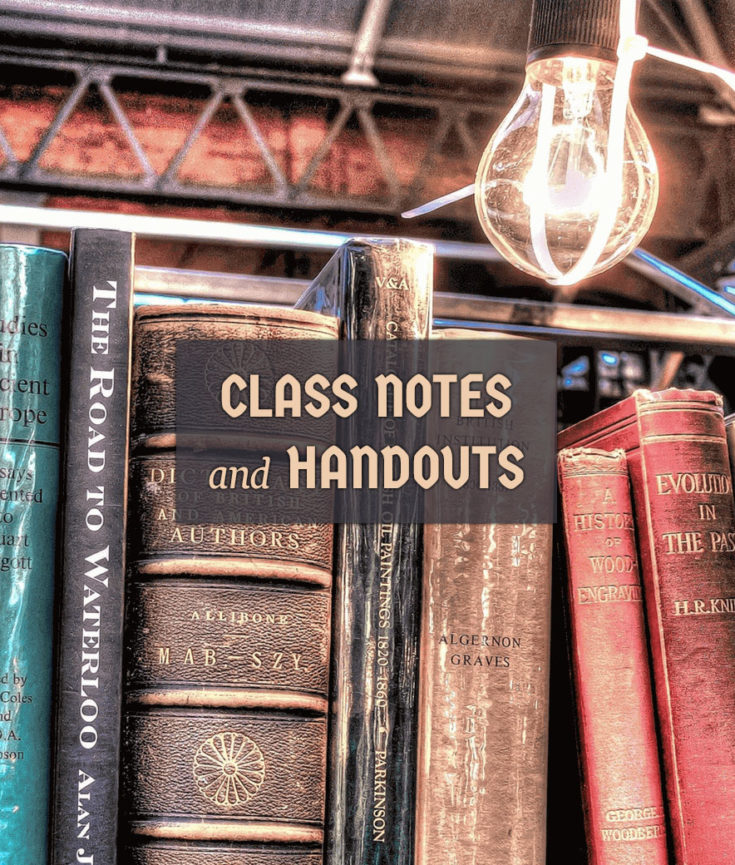
Diving into research, uncovering sources, and making sense of data can be tough. Keeping track of all your notes can be even worse. This class is an overview of my ongoing quest to develop a methodology that makes sense of the madness
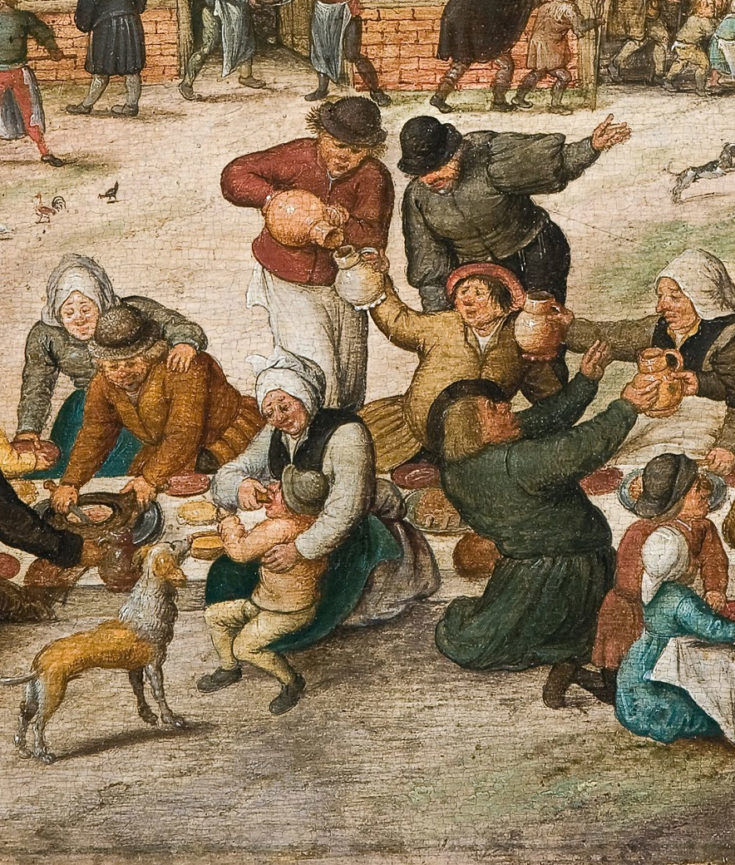
The peasants are revolting! In March 2018, I facilitated a (wholly unofficial) group discussion with area non-peers in conjunction with a peers’ retreat behind held in Kansas City the same day.
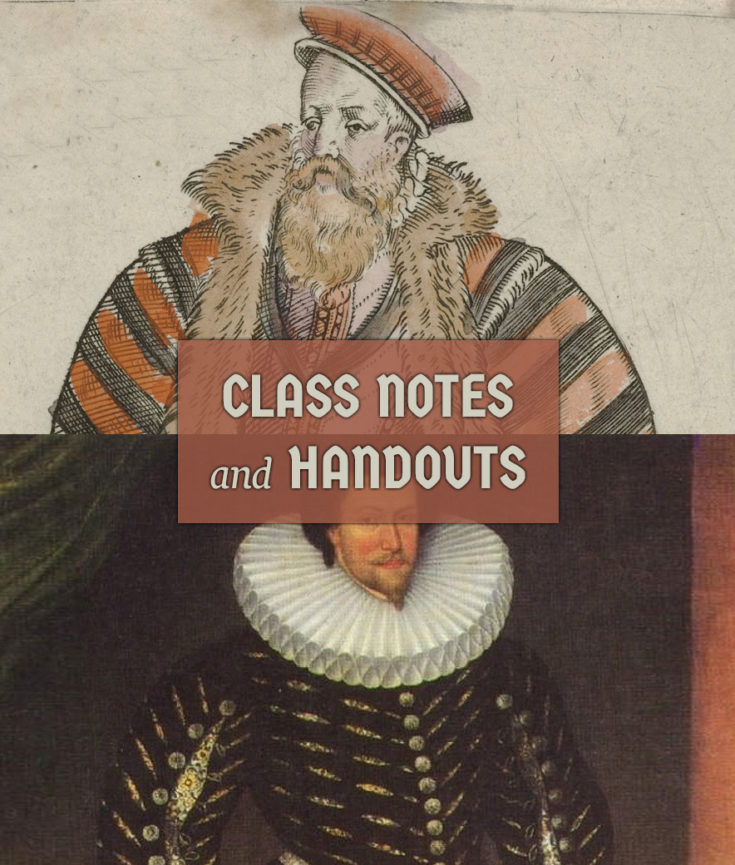
Clown costumes. Frilly ruffs and cuffs. Heads on plates. Excess in every way. For the acclimated, late sixteenth century men’s fashions were strange, bewildering, and off-putting. This lecture aims to familiarize attendees with the basics of men’s clothing of the time period – and point newcomers in a direction they may find more comfortable.
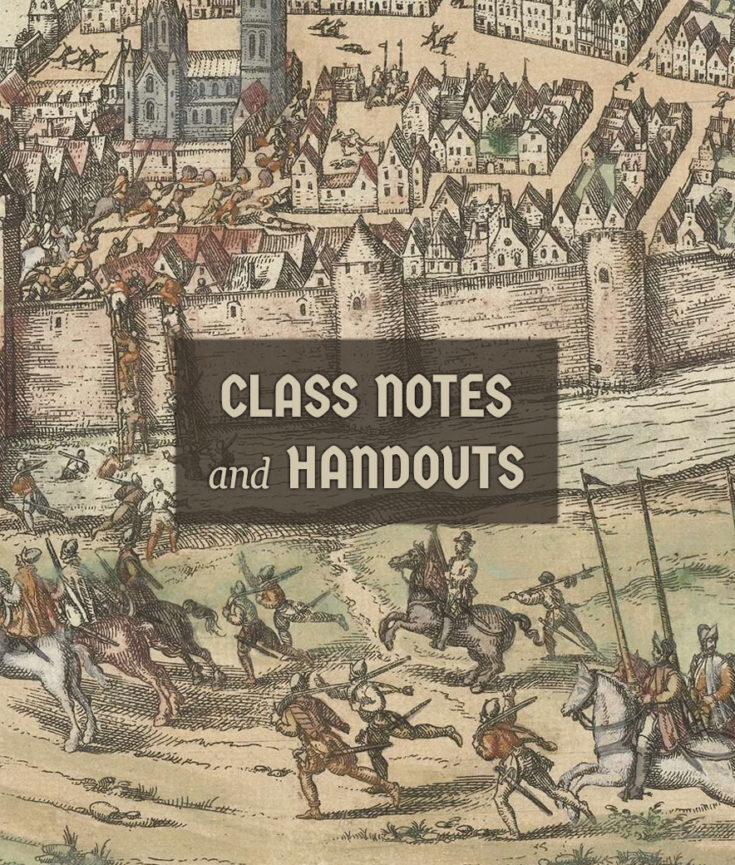
The late 16th century (or “Late, Late Period” for us thoroughly SCA types) was an absolutely fascinating and remarkable period…but tragically few people know much of it beyond Queen Elizabeth I and William Shakespeare!
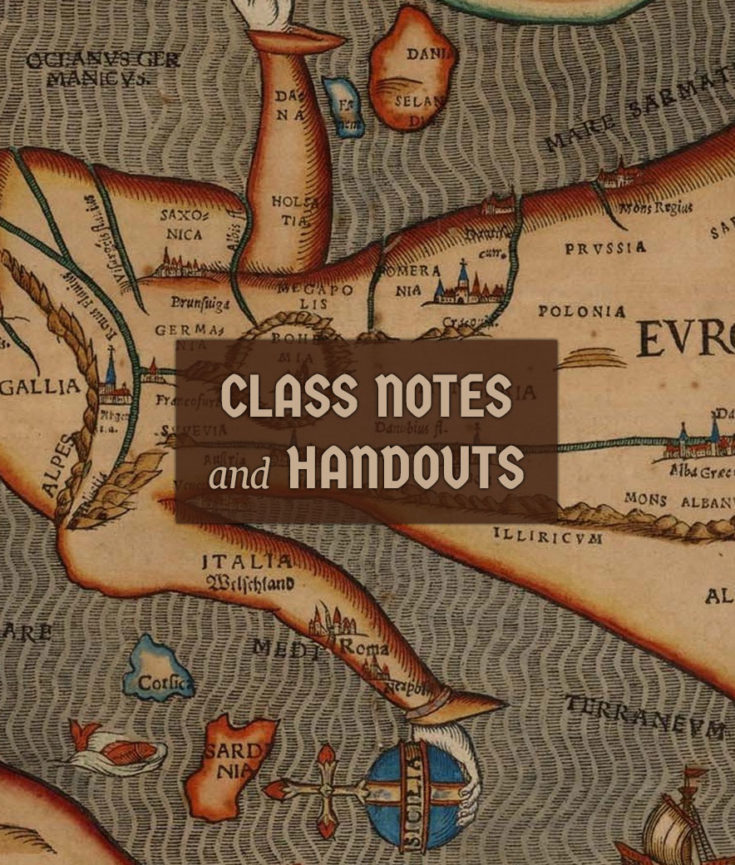
The late 16th century (or “Late, Late Period” for us thoroughly SCA types) was an absolutely fascinating and remarkable period…but tragically few people know much of it beyond Queen Elizabeth I and William Shakespeare!

While less known to American audiences compared to the Tudor-Elizabethan period in England or French Wars of Religion, the Dutch Revolt has had a vast body of academic literature surrounding it—since nearly its very inception. When combined with works on the military equipment & tactics of the era and accompanying, burgeoning printing press, there’s a wealth of references to draw from when seeking to understand the people, culture, and events of this tumultuous era.

The conflict that evolved into the Dutch struggle for independence from Spain lasted eighty years. Its roots are found many decades earlier. While periodizing history may be an arbitrary task, it can be helpful in creating a lens in which to focus research efforts. In my case, I’ve chosen 1566-1619.